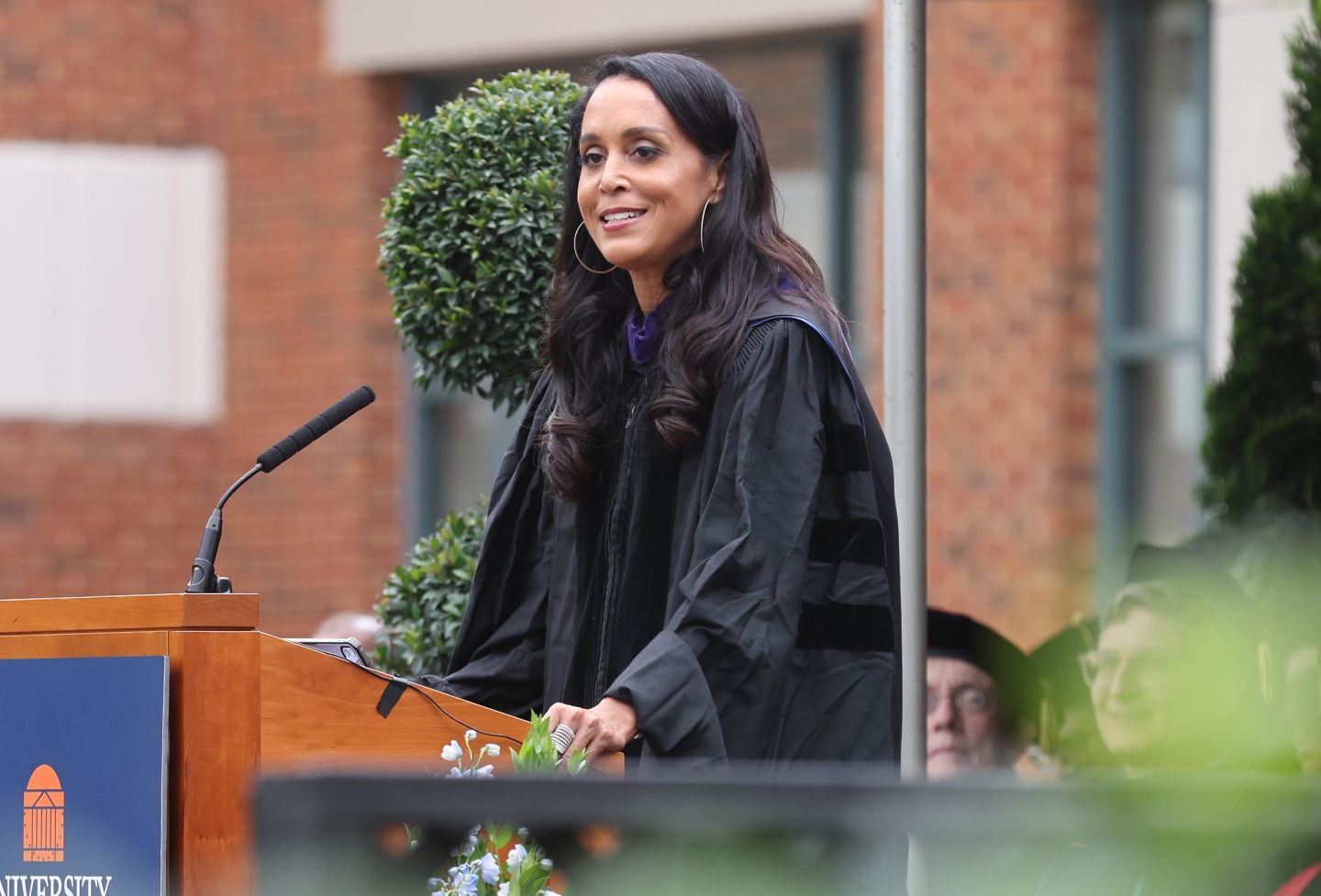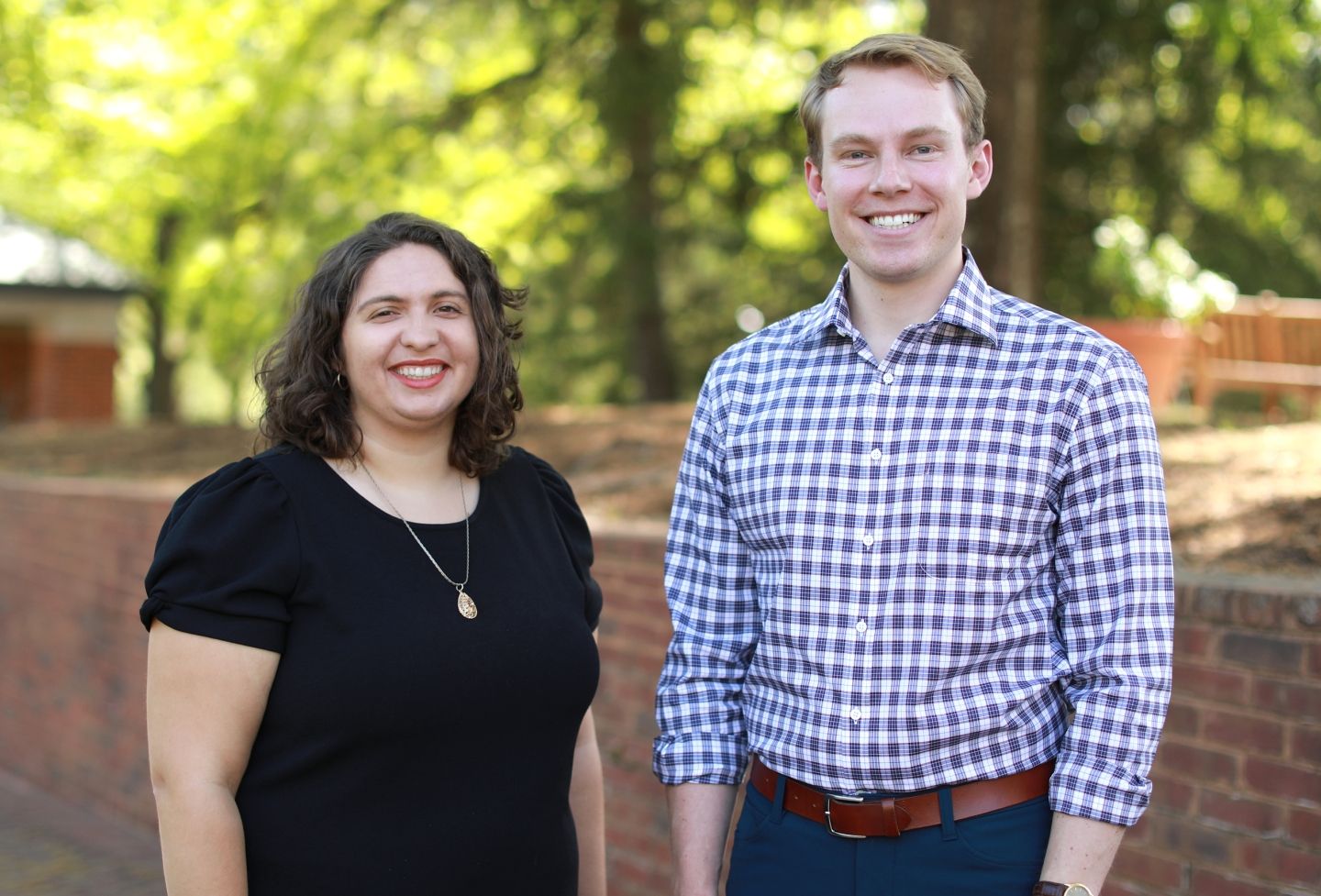University of Virginia law professor Kerry Abrams explores how immigration and citizenship law decides who receives rights of parentage in her new paper, "Immigration's Family Values," which was co-authored with 2012 UVA Law graduate Kent Piacenti and published this month in the Virginia Law Review.
Abrams and Piacenti argue that immigration and citizenship law use different parentage tests than family law not because lawmakers have failed to properly incorporate family law principles, but because lawmakers' interests are not the same in the immigration context.
Why did you want to write about this topic?
KA: Kent was my research assistant during his 1L summer. I was working on an article called "Marriage Fraud" and on an amicus brief in a Supreme Court case — Flores-Villar v. United States. Kent was helping me with both, and he pointed out several inconsistencies in my thinking about how family law and immigration law treated marriage and how each area of law treated parentage.
KP: Working for Professor Abrams that summer piqued my interest in the topic. The next semester I took her Immigration Law Course, and the semester after that I took her Family Law Course. Then, my 3L year, she supervised an independent research project in which I addressed a subset of the topics in our article. That paper was the jumping off point for the article, which we continued to work on after I graduated.
What are some of the differences in determining parentage between state family law and federal immigration and citizenship laws, and why do they exist?
KA: In many states, genetic parenthood is not the only way someone can become a legal parent. For example, if you're a man and you're married to a woman who gives birth to a child during your marriage, the "marital presumption of paternity" might apply to you, and you might be the child's legal father, even if you take a DNA test 10 years later and find out you're not the genetic father. Or imagine you're a woman living with another woman, who has a child. You care for that child and act as his second mother, but you have no genetic or adoptive relationship with the child, and have no marital relationship with the mother. In some states, a court might find that you are a "de facto parent," and give you custody or visitation of the child if you and his "real" mother broke up.
In contrast, immigration and citizenship law tend to put much more emphasis on the genetic tie. There have been cases where a man thinks he's the genetic father of his children, applies to sponsor them for a green card, takes a DNA test to support his application, and finds out he's not. It's over. He may be their legal parent for family law purposes, and he may love his kids, but he can't sponsor them for lawful permanent residence in the U.S.
How has the increase in different types of family arrangements, such as step-parenting or parentage outside of marriage, affected the problem?
KP: Immigration and citizenship law have generally been slower to innovate. Immigration law does recognize step-parents as legal parents, but other categories, such as de facto parents, get left out in the cold. These areas of law have also dealt badly with children of ART (alternative reproductive technologies). For example, we discuss in our article how if a U.S. citizen mother goes abroad to undergo in-vitro fertilization using donor eggs, until recently it has been the citizenship of the egg donor that matters, not the birth mother. That policy doesn't reflect what any of the parties think they're doing when they undergo ART.
Ultimately, should immigration law be more in line with family law?
KA: No, we aren't arguing that immigration law should track family law. In fact, one of our major points is that immigration law is different from family law. It has different goals, such as admitting an optimal number of immigrants who are likely to become productive citizens. There are also much bigger concerns about fraud in the immigration context, and the government also needs to take into consideration the rights of citizens to be reunited with their loved ones. In contrast, family law is much more concerned with children's welfare and privatizing dependency — making sure the state doesn't have to support kids. We argue that expecting immigration law to look just like family law is unrealistic and not even desirable. Instead, we should evaluate immigration law on its own terms. Sometimes, however, as in the ART example we were just talking about, immigration law does a bad job of meeting its own goals.
Kerry, how does this fit into your overall scholarship, and what are you working on next?
KA: For me, this was a pivotal piece. I've worked a lot on marriage and immigration, so it was fun to dive into the law of parentage and genetic testing. "Immigration's Family Values" helped me to think through the relationship between genetic testing and legal status in the immigration context. I'm co-authoring a piece now with my colleague (and husband) Brandon Garrett, in which we analyze how the law regulates genetic testing in many other fields — employment, health, criminal and family law.
Kent, what was it like to work on this topic with a professor?
KP: Working with Professor Abrams was an invaluable experience because it allowed me to see how an established scholar approaches the research and writing process. It also gave me the opportunity, with her guidance, to present our research to other scholars in the field at a national conference. And, perhaps most importantly, it was personally fulfilling to work with one of my favorite professors to create an original piece of scholarship.
Faculty Q&A Archive
Founded in 1819, the University of Virginia School of Law is the second-oldest continuously operating law school in the nation. Consistently ranked among the top law schools, Virginia is a world-renowned training ground for distinguished lawyers and public servants, instilling in them a commitment to leadership, integrity and community service.


